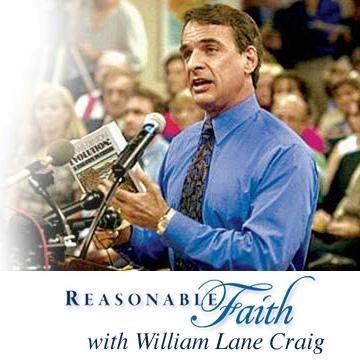The Infinite Monkey Theorem
Reasonable Faith Podcast
William Lane Craig
4.7 • 1.5K Ratings
🗓️ 24 March 2025
⏱️ 17 minutes
🧾️ Download transcript
Summary
Transcript
Click on a timestamp to play from that location
| 0:00.0 | Bill, when I was a little boy, I was told by an older kid that given enough time, |
| 0:29.2 | monkeys, and typewriters, eventually at least one of those monkeys would type Shakespeare's |
| 0:34.4 | Hamlet with no errors. In fact, the way I heard it involved an infinite |
| 0:39.5 | amount of time and monkeys. So an actual infinite is in the mix somehow. Now, the New York Times |
| 0:47.3 | just came out with an article on some of the latest research on this. And I'd like to see what |
| 0:54.0 | you think about it and how it |
| 0:55.1 | applies to the Kalam and your other work on God time and probability theory and so on. |
| 1:00.8 | Did you grow up hearing about the typing monkeys like I did, or did it come up later in your |
| 1:06.5 | studies? Well, I think this typically came up with regard to evolutionary biology, that even though |
| 1:13.2 | human beings and other biological organisms are breathtakingly complex, given enough time, |
| 1:23.4 | even a battery of monkeys sitting at a typewriter would eventually type out the sonnets and plays |
| 1:29.9 | of Shakespeare, and so we shouldn't be so surprised to see that by chance alone these complex |
| 1:38.0 | organisms have evolved. Of course, the discovery that the universe had a beginning only around 14 billion years ago kind of puts the kibosh on that argument because there isn't infinite time to arrive at these life forms. |
| 1:56.0 | The article is by Alexander Nazarian. |
| 1:58.5 | He writes that the monkey math problem was first described in a 1913 paper |
| 2:04.7 | by the French mathematician Amil Borrell, a pioneer in probability theory. Nizarian writes, |
| 2:13.0 | in 1979, the New York Times reported on a Yale professor who, using a computer program to try to prove this venerable hypothesis, |
| 2:23.4 | managed to produce startingly intelligible, if not quite, Shakespearean strings of text. |
| 2:30.5 | In 2003, British scientists put a computer into a monkey cage at the Peyton Zoo. |
| 2:37.8 | The outcome was five pages of text primarily filled with the letter S, according to news reports. |
| 2:45.5 | In 2011, Jesse Anderson, an American programmer, ran a computer simulation with much better results. |
| 2:52.6 | Then a new paper by Stephen Woodcock, a mathematician at the University of Technology, Sydney, |
... |
Transcript will be available on the free plan in -8 days. Upgrade to see the full transcript now.
Disclaimer: The podcast and artwork embedded on this page are from William Lane Craig, and are the property of its owner and not affiliated with or endorsed by Tapesearch.
Generated transcripts are the property of William Lane Craig and are distributed freely under the Fair Use doctrine. Transcripts generated by Tapesearch are not guaranteed to be accurate.
Copyright © Tapesearch 2025.

